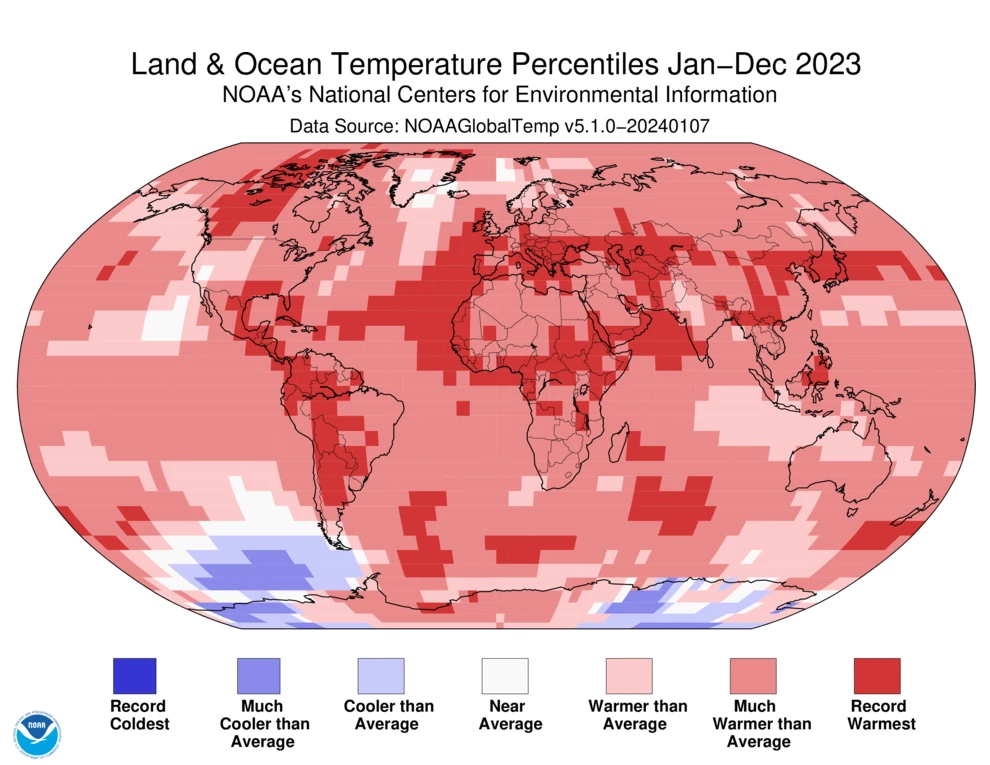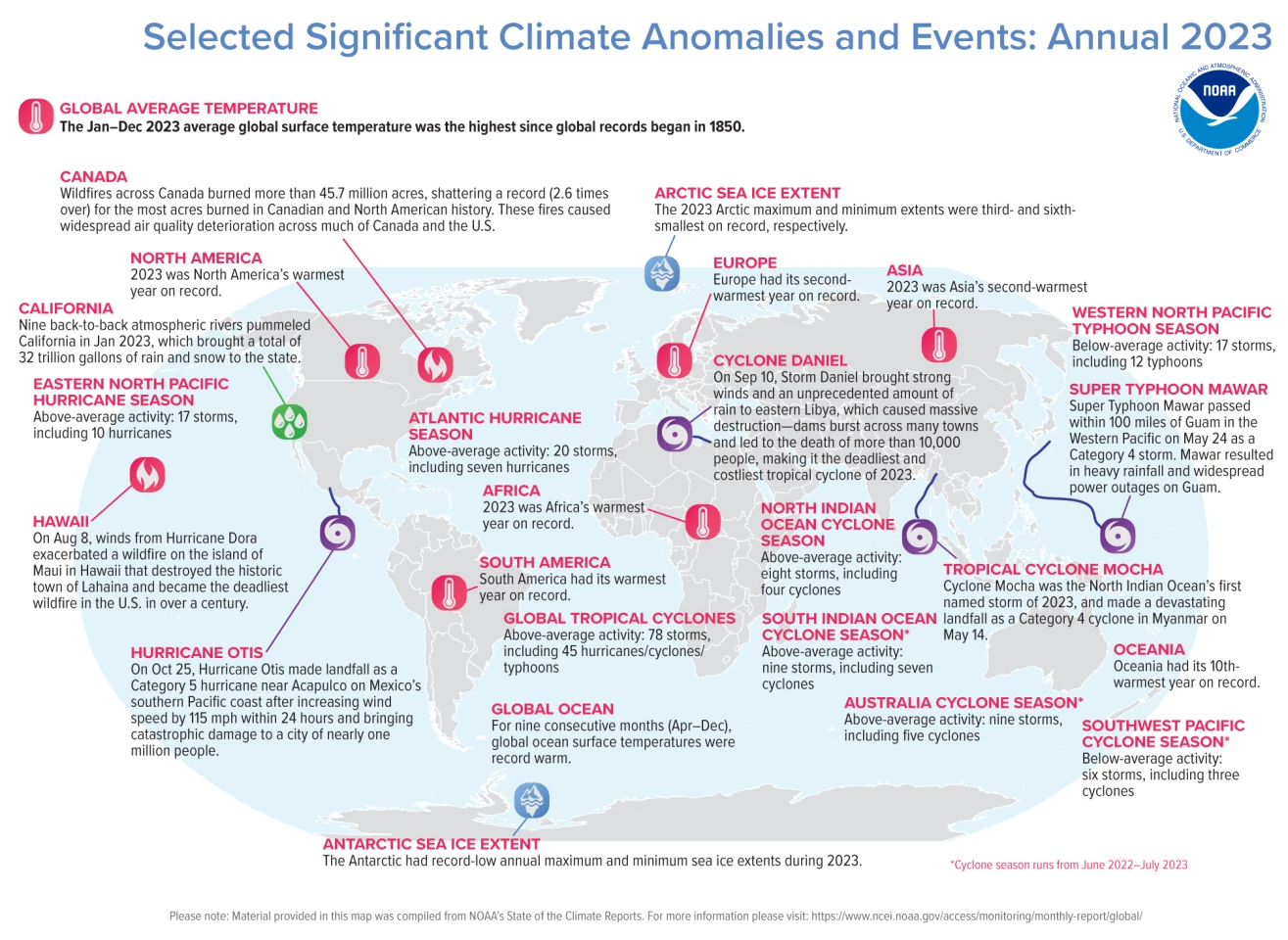It’s official: 2023 was the hottest year on record. Independent analyses by NASA, NOAA, WMO, Copernicus and the UK Met Office all reached the same conclusion, with the year also breaking a slew of other records and experiencing a string of severe weather events across the globe.
Each organization works with a slightly different data set and techniques, resulting in minor variations between the exact numbers they reach. However, all five were in agreement that 2023 was warmer than previous record-holder, 2016, by a wide margin.
NASA found that global average surface temperatures were 1.2 °C (2.1 °F) above the baseline period it uses – 1951 to 1980. NOAA gets its average across the whole 20th century, finding that 2023 was 1.18 °C (2.12 °F) higher than that. Copernicus, WMO and the Met Office use a pre-industrial baseline of 1850 to 1900, finding 2023 to be 1.45 to 1.48° C (2.61 to 2.66 °F) higher than that. Regionally, Africa, North and South America experienced their hottest year on record, while it was the second-hottest in Europe and Asia.

Other temperature records were also reached throughout the year. Each month from June to December set a global record for that respective month, with July 2023 being the hottest month of any ever recorded, while also including both the hottest day and week on record, and culminating in the Northern Hemisphere experiencing the hottest summer on record. For the first time ever, every single day of 2023 was more than 1 °C (1.8 °F) warmer than the pre-industrial average, and almost half were over 1.5 °C (2.7 °F) warmer. Two days in November were more than 2 °C (3.6 °F) warmer than that average, a threshold which hadn’t been crossed before.
Oceans suffered too. Global ocean surface temperatures saw record highs every month between April and December, while Antarctica saw its sea ice reach the smallest ever maximum and minimum extents. Upper ocean heat content was also the highest on record – a value that measures how much heat is stored in the upper 2,000 m (6,560 ft) of the ocean. That leads to the atmosphere retaining more of its heat and water vapor, in turn leading to more extreme weather.
And there was no shortage of that in 2023. Globally, tropical storms had above average activity, with 45 hurricanes/cyclones/typhoons, capped off with Cyclone Daniel, the deadliest storm to hit Africa in recorded history, killing over 10,000 people. Wildfires in Canada burned the largest area on record for North America, exacerbated by record-breaking heat waves on the continent.

Worryingly, 2024 is in a strong position to steal the crown for hottest year. One of the main contributors to global climate is the El Niño-Southern Oscillation cycle, which kicked off an El Niño event in mid-2023. These raise global temperatures, as seen in the back half of the year – but it’s not predicted to reach its peak until February, March and April 2024.
As always, the scientists involved in the studies are pointing to human-induced climate change, which is increasingly manifesting in alarmingly visible ways. Let’s just hope the warnings don’t fall on deaf ears.
“After seeing the 2023 climate analysis, I have to pause and say that the findings are astounding,” said Dr. Sarah Kapnick, NOAA Chief Scientist. “Not only was 2023 the warmest year in NOAA’s 174-year climate record — it was the warmest by far. A warming planet means we need to be prepared for the impacts of climate change that are happening here and now, like extreme weather events that become both more frequent and severe.”
Check out NASA's detailed video on how it measured the record below.
Sources: NASA, NOAA, Copernicus, WMO, Met Office





